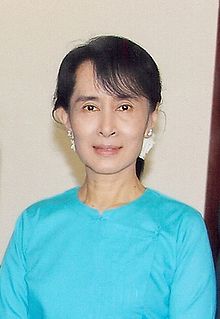
SITTWE, MYANMAR (TIP): Noor Bagum would have liked to have voted for Aung San Suu Kyi’s National League for Democracy
(NLD) but, like the majority of Myanmar’s persecuted Rohingya Muslim minority, she took no part in the historic election the Nobel laureate won by a landslide.
Stripped of their right to cast ballots by the current government, many Rohingya now hope that, with the NLD able to rule largely on its own, a Suu Kyi-led government will work to restore their lives and many of the rights they have lost.
“I hope that things will get a little bit better,” said Noor Bagum, a 28-year-old mother-of-five, whose village was destroyed during violence between Buddhists and Muslims that swept through Myanmar’s western Rakhine State in 2012.
Dealing with the Rohingya will be one of the most controversial – and unavoidable – of a long list of issues Suu Kyi will inherit from the current government.
Feted by many in the West for her role as champion of Myanmar’s pro-democracy movement during long years of military rule, she has been criticized overseas, and by some in Myanmar, for saying little about the abuses faced by the group.
When an NLD government takes power in March, she will come under mounting international pressure to take a definitive stance in their defence.
But speaking out for the Rohingya would carry a political cost at home. The group is widely disliked in Myanmar, where they are seen as illegal immigrants from Bangladesh -including by some in Suu Kyi’s party. She risks haemorrhaging support by taking up the cause of the beleaguered minority.
LOCAL RIVAL
The NLD also faces a powerful local rival -the Arakan National Party (ANP) – that has been accused of stoking anti-Muslim sentiment and has called for the deportation of Rohingya. The ANP won most of the 29 national level seats in Rakhine and took decisive control of the state’s regional assembly.
“We’ll be damned if we do, and we’ll be damned if we don’t,” said Win Htein, a senior NLD leader, adding that standing up for the Rohingya would give the ANP “ample reason to criticize the NLD”.
Although many have lived in Myanmar for generations, the Rohingya are not one of the 135 ethnic groups recognised under the country’s citizenship law and are thus entitled to only limited rights.





Be the first to comment